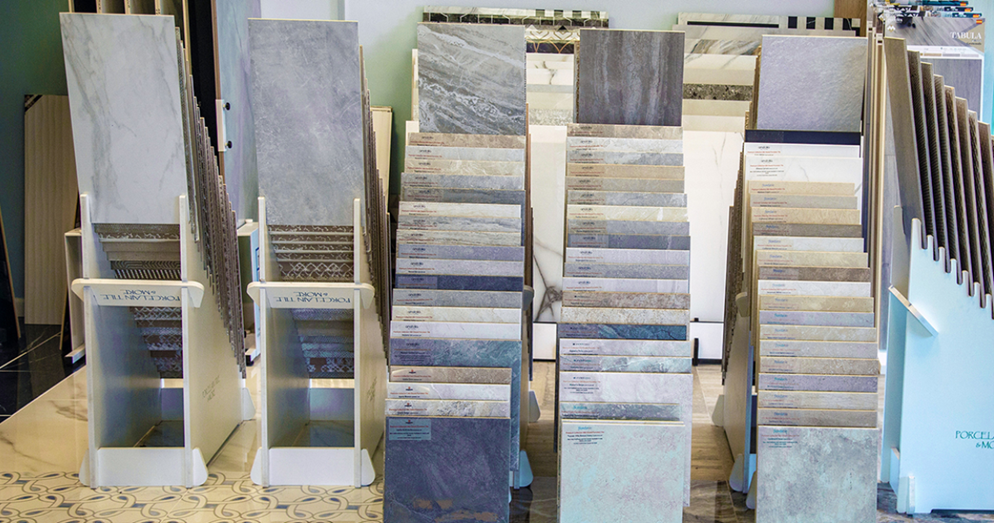Stone countertops are a timeless and elegant addition to any home’s kitchen or bathroom. They offer durability, beauty, and versatility, making them a popular choice among homeowners. However, with various types of stone available on the market, choosing the perfect stone countertop can be a daunting task. In this guide, we’ll explore the different types of stone countertops, their pros and cons, maintenance tips, and factors to consider when selecting the right stone for your space.
Types of Stone Countertops
Granite Countertops
- Pros: Granite countertops are known for their durability, heat resistance, scratch resistance, and wide range of colors and patterns, making them suitable for high-traffic kitchens where both durability and aesthetics are essential.
- Cons: However, granite countertops require sealing to prevent stains, can be relatively expensive compared to other options, and may have visible seams depending on the slab size.
- Best for: Ideal for homeowners looking for a durable and visually appealing option for their kitchen countertops.
Marble Countertops
-
- Pros: Marble countertops offer a luxurious appearance with unique veining patterns and excellent heat resistance, making them perfect for low-traffic areas or homeowners willing to invest in regular maintenance to preserve their beauty.
- Cons: They are prone to staining, scratching, and etching from acidic substances like lemon juice or vinegar, requiring careful maintenance.
- Best for: Suited for areas where aesthetics are prioritized over heavy use, such as in bathrooms or less frequently used kitchen spaces.
Quartz Countertops
-
- Pros: Quartz countertops are non-porous, making them highly stain-resistant and scratch-resistant. They come in various colors and patterns, offering versatility in design options.
- Cons: Unlike granite or marble, quartz countertops are not heat-resistant and can be relatively expensive.
- Best for: Ideal for busy kitchens and bathrooms where low maintenance and durability are desired, making them a popular choice among homeowners.
Soapstone Countertops
-
- Pros: Soapstone countertops are heat-resistant stain-resistant, and develop a natural patina over time, adding to their charm.
- Cons: They require periodic oiling to maintain their appearance and have limited color options compared to other stones.
- Best for: Suitable for homeowners looking for a rustic or traditional aesthetic in their kitchen designs, as soapstone complements such styles beautifully.
Slate Countertops
-
- Pros: Slate countertops are durable, heat-resistant, and available in dark, earthy tones, making them ideal for creating a natural, rustic aesthetic in kitchen or bathroom designs.
- Cons: They can chip or scratch easily, and there are limited color choices compared to other stones.
- Best for: Perfect for homeowners seeking a natural and rugged look in their countertops, enhancing the overall rustic vibe of their living spaces.

Factors to Consider When Choosing a Stone Countertop
Choosing the perfect stone countertop involves considering several key factors to ensure that it meets your practical needs, aesthetic preferences, and environmental values. Here are five crucial factors to keep in mind when selecting a stone countertop:
Budget:
Your budget plays a significant role in determining the type of stone countertop you can afford. Before exploring stone options, establish a clear budget range that not only considers the initial cost of the countertop but also factors in long-term maintenance expenses. Some stones may have a lower upfront cost but require more frequent sealing or maintenance, which can add to the overall expenses over time. On the other hand, investing in higher-quality, durable stone may result in lower maintenance costs in the long run.
Aesthetic Preferences:
The appearance of your stone countertop can greatly impact the overall look and feel of your kitchen or bathroom. Consider your aesthetic preferences, including the color, veining pattern, and finish of the stone. Different stones offer unique visual characteristics, from the bold and dramatic veining of marble to the subtle elegance of quartz. Additionally, explore various finishes, such as polished, honed, or leathered, as each can create a distinct look and texture. Choose a stone that harmonizes with your existing design elements and reflects your personal style.
Durability and Maintenance:
Assessing the durability of each stone type is crucial to ensuring that it can withstand your usage habits and lifestyle. Some stones, like granite and quartz, are highly durable and resistant to scratches, heat, and stains, making them ideal for busy kitchens. On the other hand, softer stones like marble may require more delicate handling and regular sealing to prevent damage and staining. Consider your daily activities in the kitchen or bathroom, such as food preparation, entertaining, and cleaning routines, and select a stone that can endure these demands with minimal maintenance. Additionally, research the specific maintenance requirements of each stone, including sealing intervals, recommended cleaning products, and repair options, to make an informed decision.
Functionality:
The functionality of your stone countertop should align with your practical needs and usage patterns. Think about how you utilize your countertops on a daily basis, such as for cooking, baking, hosting gatherings, or performing daily hygiene routines. If you frequently engage in food preparation and cooking tasks, prioritize a durable and heat-resistant stone that can withstand chopping, slicing, and hot cookware. For entertaining purposes, choose a stone that enhances the aesthetic appeal of your space while remaining practical and easy to maintain. Tailor your stone selection to match the specific functionalities and activities that occur in your kitchen or bathroom.
Environmental Impact:
In an era of increased environmental awareness, consider the environmental impact of different stone materials when choosing a countertop. Research the sourcing practices, extraction methods, and sustainability certifications associated with various stones. Opt for options like recycled stone or locally sourced materials whenever possible to reduce your carbon footprint and support eco-friendly practices. By prioritizing environmentally conscious choices, you can create a beautiful and sustainable living space that aligns with your values.
Maintaining stone countertops
Maintaining stone countertops is essential to preserving their beauty and durability over time. Here are four key practices to help you keep your stone countertops in excellent condition:
Cleaning:
-
- Use a mild soap and water solution or a pH-balanced stone cleaner for daily cleaning.
- Avoid using harsh chemicals or abrasive cleaners that can scratch or damage the stone’s surface.
- Wipe the countertops dry after cleaning to prevent water spots or streaks.
Sealing:
-
- Follow the manufacturer’s recommendations for sealing stone countertops, especially if they are porous, like marble or limestone.
- Regularly reapply the sealant as per the manufacturer’s instructions to maintain protection against stains and moisture penetration.
- Test the effectiveness of the sealant periodically by dripping water onto the countertop. If the water beads up, the sealant is still active. If it absorbs into the stone, it’s time to reseal.
Avoiding Damage:
-
- Use cutting boards and trivets to protect the stone from scratches caused by knives, pots, and pans.
- Place hot items on trivets or heat-resistant pads to prevent heat damage, especially on natural stones like granite and quartzite.
- Immediately wipe up spills, especially acidic substances like citrus juices or vinegar, as they can etch or stain the stone, particularly on softer stones like marble.
Regular Inspections:
-
- Periodically inspect your countertops for any signs of wear, such as chips, cracks, or dull spots.
- Address any issues promptly to prevent further damage and maintain the integrity of the countertop.
- For deep scratches or significant damage, consult a professional stone restoration specialist for repair options.

Conclusion
When it comes to choosing the perfect stone countertop for your home, it’s essential to consider factors such as durability, maintenance requirements, aesthetics, and budget. Granite countertops from At All Flooring offer a durable and visually appealing option for high-traffic kitchens, while marble countertops are ideal for low-traffic areas or those prioritizing luxury and aesthetics. Quartz countertops provide a blend of durability and low maintenance, making them suitable for busy kitchens and bathrooms.
For homeowners seeking a rustic or traditional look, soapstone countertops from All Flooring offer heat resistance and a natural patina over time. Lastly, slate countertops are perfect for creating a natural, rustic aesthetic in kitchen or bathroom designs.
Additionally, the choice of a stone countertop is determined by your individual requirements, stylistic choices, and budget. All Flooring provides a wide choice of stone countertops to meet the needs of every homeowner, providing both quality and happiness with your countertop investment.

